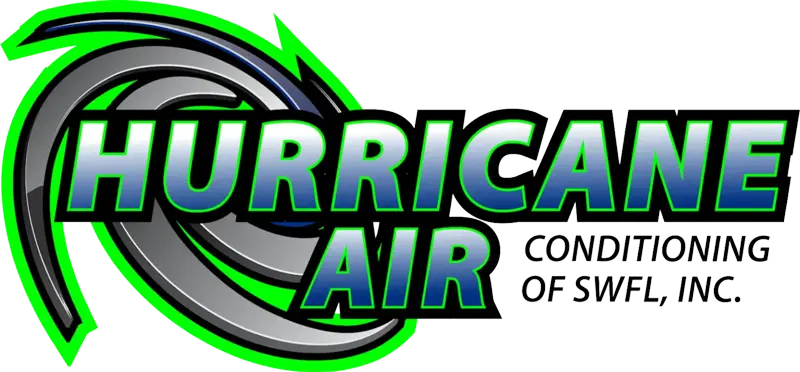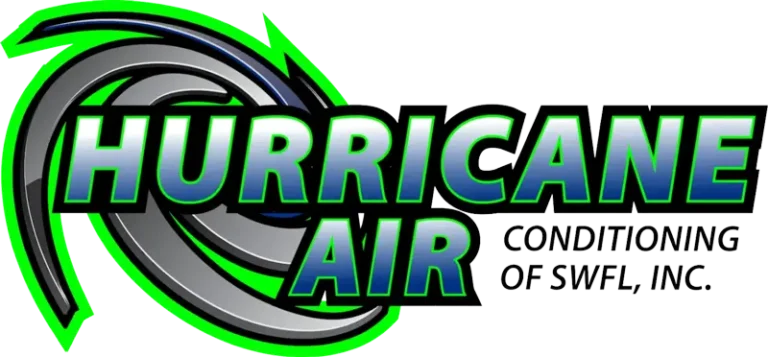Summer in Southwest Florida is the season for high temperatures and humidity. This time of year is particularly uncomfortable and your air conditioner plays a critical role in staying comfortable. But what happens when you spot your AC leaking water? Don’t panic, we’re here to help you navigate this issue and ensure your home and AC unit remain in tip-top condition.
Leaking water from an air conditioner can swiftly turn from a minor hassle into a major headache, potentially causing damage to your ceilings, walls, and floors, and interfering with your AC’s performance. Plus, excess moisture can encourage mold growth, which harms your home’s air quality. That’s why it’s important to promptly address such issues. Here at Hurricane AC, our seasoned team has tackled countless leaking air conditioner cases, and we’re equipped to effectively solve this problem. We’ll shed light on why your AC may be leaking and offer steps for identifying and resolving the issue.
Understanding How Your AC Works
To fully grasp where the leak may be coming from, let’s dive into how an air conditioner works. Contrary to popular belief, it doesn’t just blow cool air. It actually extracts heat from your home and releases it outdoors. This cooling process involves the evaporator coils, compressor, and condenser working together to pump refrigerants through the system, allowing heat exchange to occur.
When the warm air in your house passes over the chilly evaporator coils filled with cold liquid refrigerants, it cools down and gets blown back into your living space. Meanwhile, the refrigerants absorb the heat and transfer it outside to evaporate. The heated gas travels to the compressor situated outside your house, where it gets compressed and further heated before reaching the condenser. Once it reaches the condenser coils, the heat gets released outside, and the refrigerant cools down before returning to a liquid state to start the cycle again. By understanding this process, you’ll be better equipped to maintain your AC and troubleshoot any issues.
Why Is Water Forming Inside My Air Conditioner?
Your AC produces water via condensation. Just like how water droplets form on a cold glass, moisture forms on the evaporator coil as hot air passes over it. This moisture then drips into a drain pan and out of your home through a condensate drain line.Normally, this drain line successfully removes the water, preventing leaks. However, issues can arise like clogged drain lines, damaged drain pans, or improper installation, causing your AC to leak water indoors. Swiftly addressing these issues will avoid further damage and keep your AC running efficiently.
Reasons Why Your AC Is Leaking Water
If your AC is leaking, it’s best to turn off the system and identify the cause. The problem often falls into one of the 10 common categories we’ll now explore.
Clogged Condensate Drain Line
Blocked condensate lines is a frequent culprit behind leaking air conditioners. When the drain line gets blocked by dust, dirt, sludge, or mold, the water can’t be discharged. The line needs to be unclogged, something that professional HVAC technicians can do with a specialized vacuum.To avoid drain line blockages, schedule regular HVAC maintenance at least once a year, ideally before summer hits. This includes cleaning the drain pan, checking the drain line, and removing any buildup. A twice-yearly rinse with a diluted bleach mixture can also prevent mold or bacteria from growing in the line.
Disconnected or Damaged Drain Line
If your drain line gets disconnected or damaged, it can cause indoor leaks. This typically occurs due to poor installation, improper repairs, or loosening over time. A professional HVAC technician can help reconnect or replace the line.
Damaged Drain Pan
Your AC’s drain pan, or drip pan, collects condensation from the evaporator coils. But over time, it can become damaged or rusted which can result in leaks. This is particularly common in AC units aged between 12 and 15 years.
Drain pans typically come in three materials: galvanized steel, stainless steel, or polymer.
- Galvanized steel pans are common but less durable, lasting around 20 years.
- Stainless steel pans resist corrosion and can last up to 25 years, but they’re pricier.
- Polymer pans are the longest-lasting, thanks to their rust-resistant and non-stick properties that hinder microbial growth.
If your drain pan is damaged or rusted, an HVAC specialist can seal a cracked pan or replace a rusted one, preventing further water leakage and potential damage to your AC and home.
Broken Condensate Pump
In some HVAC configurations, particularly when your furnace and indoor AC unit are located in the basement, a condensate pump is necessary to efficiently drain the water from the drain pan. This is because gravity alone may not be adequate. If this pump malfunctions or breaks, it can result in a water buildup and potentially cause leaks which can damage your home. Hence, it’s crucial to promptly repair or replace a broken condensate pump to prevent this.
Condensate pumps are generally found in basements or attics, especially when the AC unit is far from the exterior of the home. The pump gets activated when the water level in its tank reaches a certain point, thanks to a float switch. If you suspect a broken condensate pump, we highly recommend seeking the expertise of professional HVAC technicians to diagnose the issue and, if necessary, replace the faulty pump.
Frozen Coils
If your air conditioner’s evaporator coil freezes over, it’s typically due to reduced airflow or a refrigerant leak. The former can result from issues like a dirty filter, a blocked return vent, a damaged fan, a collapsed air duct, or a dirty coil. These problems prevent adequate heat absorption by the refrigerant, stopping it from warming up and turning into a gas. Consequently, the refrigerant ends up freezing inside the coils.
A refrigerant leak can also cause leaks because a leak lowers the pressure inside the coils, causing the remaining liquid refrigerant to expand. This, in turn, lowers the coil’s temperature and can lead to freezing. If this happens, your drain pan might become overwhelmed and leak water.
To tackle a frozen evaporator coil and restore proper airflow, it’s important to switch off your AC unit. The water you see dripping is from the unit thawing out. It’s wise to hire a professional HVAC technician to inspect your unit and ensure it operates correctly after thawing. If your AC keeps freezing, it’s crucial to identify and resolve the underlying problem. Regularly check for and resolve airflow blockages, including cleaning dirty air filters and blocked return vents. If this doesn’t solve the problem, you may need a technician’s help to address a potential refrigerant shortage.
Dirty Air Filter
Air filters that aren’t regularly cleaned or replaced can reduce airflow over the evaporator coil. This can cause the coil to become excessively cold and freeze, resulting in water overflow once the ice melts. Regularly check, clean, or change your air filter to avoid this problem and prevent undue strain on your HVAC system. Cleaning involves removing the filter from the unit, rinsing it, and letting it dry completely before reinstalling it. During hotter months when the AC is used more frequently, it should be cleaned every month and replaced every 3 months.
Low Refrigerant
Low refrigerant levels can not only lead to water leakage but also overwork your air conditioner. Low refrigerant decreases the pressure in your refrigerant lines which causes the evaporator coils to freeze over. As the coil eventually thaws, excess water can overflow the drain pan which results in a leak. Signs of low refrigerant include poor cooling performance and a hissing or bubbling noise. It’s crucial to promptly address this issue to prevent further damage. Regular inspections of your refrigerant levels during maintenance checks, ideally before each summer, can help identify and resolve potential refrigerant leaks.
Excessive Condensation
Excessive condensation in your AC can cause water leaks, damage your home, and compromise your indoor air quality. This typically occurs due to inadequate insulation around ducting, or if the ductwork passes through an uninsulated attic or basement. This is due to warm air coming into contact with the cool surface of the ducting which causes condensation to develop, similar to the outside of a soda can on a hot day. Condensation can also occur due to high humidity levels or be exacerbated by roof leaks or poor ventilation. Keeping humidity levels between 30-50% is ideal. To prevent condensation and potential leakage, ensure proper insulation of ductwork and attics, and promptly fix roof leaks.
Air Leaks Around Vents
Leaks around air vents can cause condensation to form and drip from the vent. You can check for this by placing your hand under the vent to feel for any air escaping from the sides of the vent grate. If this is the case, you can fix this issue simply by caulking around the vent to create a tight seal.
Improper AC Installation
Air conditioners that were installed incorrectly can result in various problems including water leakage. Incorrectly installed AC units can disrupt proper airflow and cause water to accumulate underneath the unit which can damage your home. Proper AC installation can prevent water leakage and includes correctly leveling the unit, connecting all drain lines, and ensuring proper balance of all components.
Dangers of Water Leaking from Your AC
Water leakage from your AC poses several threats that need to be addressed immediately. Excessive condensation can promote mold and mildew growth, compromise indoor air quality, and cause health issues. Water leakage can also damage sheet rock and insulation, causing them to weaken and deteriorate over time. Water can also cause electrical issues and even short circuits, potentially damaging your AC or causing a fire hazard. If you suspect water has compromised your electrical system, consult a qualified electrician before attempting any AC repairs. Regularly addressing and preventing water leakage can protect your property and extend the lifespan of your AC system.
Steps to Take When Your Air Conditioner is Leaking Water
If you discover that your air conditioner is leaking water, here’s what you should do to mitigate the situation and prevent further damage:
- Switch off the air conditioner: If you spot excess water around the unit, switch it off to halt further damage until you locate the source of the leak.
- Clean up the leaked water: Employ a wet/dry vacuum or mop to clean up the leaked water. Using fans can also help to dry the area quickly and reduce the risk of mold and mildew formation.
- Inspect the AC unit: Check the lines on the outdoor unit and the evaporator coils in the air handler for ice buildup.
- Thaw the ice: Run the fan to draw warm air across the frozen coils and melt the ice. Remember, using the air conditioner while it’s frozen won’t cool your home effectively and may cause more harm.
- Check the air filter: Regularly inspect, clean or replace your air filter as necessary to maintain optimal airflow.
- Examine the condensate line and drain pan: If there’s standing water in the drain pan, it’s likely due to a clogged line. Similarly, visible damage like rust on the drain pan may be the cause of the leak.
- Call a professional: If you’re unable to find or fix the problem, it’s time to call an HVAC professional for diagnosis and repairs.
Don’t Forget to Check for Other Possible Sources of Leaks
Sometimes, the water dripping from your AC vents might not be an AC issue at all. It’s vital to rule out other potential sources of the leak, such as plumbing or roof leaks, which could have water finding its way into your ductwork and dripping from the AC vents.If you suspect a roof or plumbing leak, be sure to call in the relevant professionals—a roofing expert for a roof leak, or a plumber for plumbing issues. By investigating these potential sources of leaks, you ensure the right professionals are called in to tackle the problem effectively.
Why You Shouldn’t Use a Leaking AC Unit
While it might be tempting to keep using your air conditioner even when it’s leaking water, it’s not a good idea. A leaking AC unit will not only be less efficient and cost more to run and it can also cause additional damage to your home and the unit itself.If left unattended, a leaking AC unit could lead to other internal components working harder than necessary, potentially shortening your unit’s lifespan and leading to expensive repairs or replacements. It’s recommended to have any issues repaired by a professional HVAC technician as soon as possible.
Prevent Future AC Leaks
Prevention is key when it comes to avoiding future AC leaks. Scheduling regular maintenance for your AC unit—at least once or twice a year, preferably in spring before the summer heat kicks in—is essential.During a maintenance check, a professional HVAC technician should inspect your unit thoroughly, checking the drain pan for cracks or rust and treating it to avoid algae buildup. They should also flush the drain line, check the condensate pump, and conduct other critical checks.Avoid using your AC when outdoor temperatures drop below 60 degrees Fahrenheit, as running the AC in cold conditions can cause the system to freeze. If the suggestions provided do not resolve a leaking air conditioner, a professional HVAC technician can conduct a comprehensive system check-up and address any underlying issues that may be causing the leaks.
Leaking AC Unit FAQs
- How can I prevent my air conditioner from leaking water? To prevent your AC unit from leaking, regularly clean or replace the air filters, inspect for blockages in the drain line, ensure proper insulation around the unit, and schedule regular professional maintenance.
- Why is my AC unit dripping water? Your AC might be dripping water due to a clogged drain line, frozen evaporator coil, incorrect installation, low refrigerant levels, or a malfunctioning condensate pump. It’s best to contact a professional HVAC technician to diagnose and fix the issue.
- Is it okay for my AC to be dripping water? No, it’s not okay. Water leakage from an air conditioner can indicate underlying issues that require immediate attention. If ignored, it can lead to further damage to your unit, potential mold growth, and reduced cooling efficiency. It’s advisable to promptly address the issue by contacting a professional HVAC service provider.


